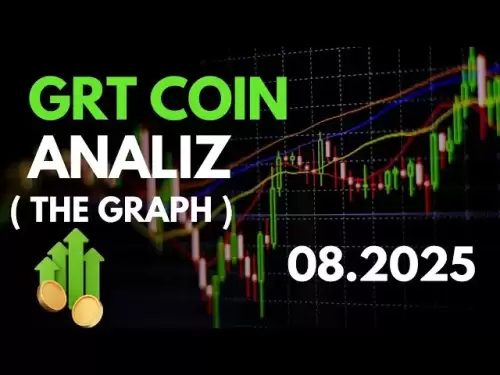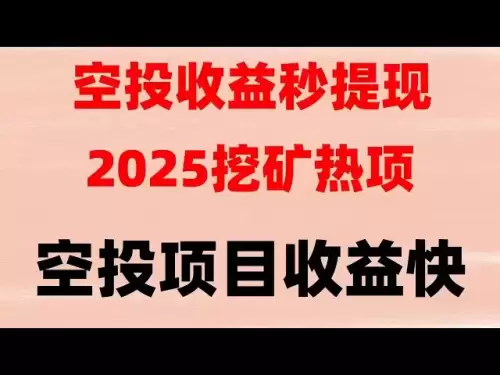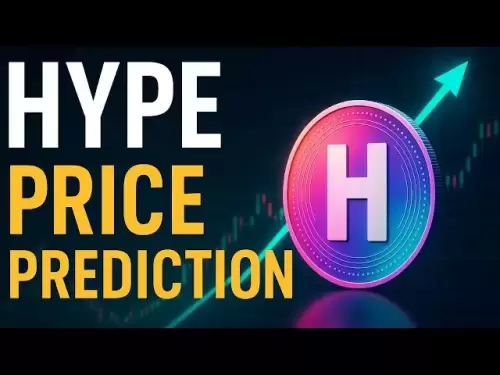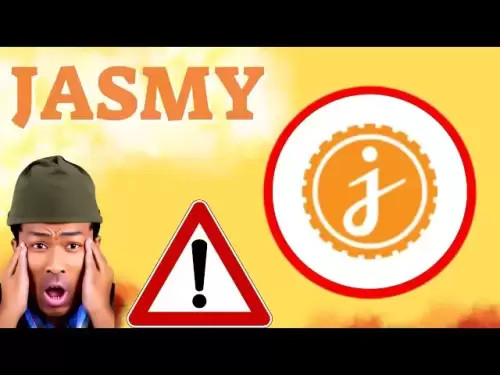-
 Bitcoin
Bitcoin $119300
2.40% -
 Ethereum
Ethereum $4254
-0.20% -
 XRP
XRP $3.184
-1.38% -
 Tether USDt
Tether USDt $1.000
0.00% -
 BNB
BNB $803.9
0.58% -
 Solana
Solana $183.1
1.50% -
 USDC
USDC $0.0000
0.01% -
 Dogecoin
Dogecoin $0.2339
-2.87% -
 TRON
TRON $0.3384
0.88% -
 Cardano
Cardano $0.8018
-0.29% -
 Hyperliquid
Hyperliquid $45.13
3.14% -
 Chainlink
Chainlink $22.10
0.96% -
 Stellar
Stellar $0.4439
-0.94% -
 Sui
Sui $3.875
-0.73% -
 Bitcoin Cash
Bitcoin Cash $570.7
0.24% -
 Hedera
Hedera $0.2589
-2.90% -
 Ethena USDe
Ethena USDe $1.001
-0.01% -
 Avalanche
Avalanche $23.83
-1.73% -
 Litecoin
Litecoin $123.8
2.61% -
 Toncoin
Toncoin $3.351
-1.13% -
 UNUS SED LEO
UNUS SED LEO $9.103
1.13% -
 Shiba Inu
Shiba Inu $0.00001356
-1.40% -
 Uniswap
Uniswap $10.93
-0.19% -
 Polkadot
Polkadot $4.057
-1.97% -
 Dai
Dai $1.000
0.01% -
 Cronos
Cronos $0.1646
4.66% -
 Ethena
Ethena $0.7974
8.11% -
 Pepe
Pepe $0.00001208
-2.89% -
 Bitget Token
Bitget Token $4.445
-1.70% -
 Monero
Monero $268.8
-2.00%
What can Request (REQ) coins be used for?
Request Network (REQ) empowers users with decentralized payment infrastructure for secure, traceable micropayments, encompassing invoicing, requests, and integration with other systems.
Dec 21, 2024 at 01:37 pm
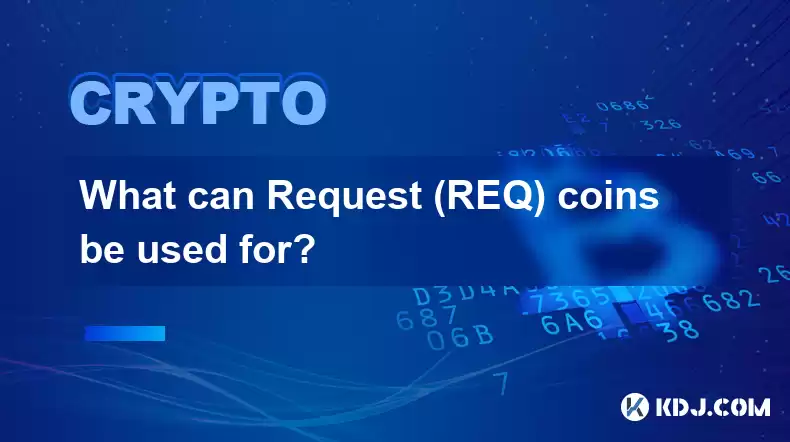
Key Points:
- Request Network (REQ) is a decentralized payment and request infrastructure that enables secure, trackable, and audited micropayments.
REQ coins can be used for:
- Making payments
- Requesting payments
- Creating and managing invoices
- Tracking and auditing payment requests and transactions
- Integration with other systems and applications
What is Request Network (REQ)?
Request Network is a decentralized payment and request infrastructure that aims to provide a secure, trackable, and audited platform for micropayments. It eliminates the need for intermediaries, reduces transaction costs, and ensures transparency in the payment process.
Use Cases for REQ Coins
1. Making Payments
- REQ coins can be used to send and receive payments over the Request Network.
- Users can create invoices, request payments, and process incoming funds.
- Payments can be made from a variety of sources, such as cryptocurrency wallets, bank accounts, and credit cards.
2. Requesting Payments
- REQ coins can be used to make payment requests to other users on the Request Network.
- Businesses can use requests to invoice customers, freelancers can use requests to collect payment for services, and individuals can use requests to ask for financial assistance.
- Requests are trackable and auditable, ensuring that all parties have a clear record of transactions.
3. Creating and Managing Invoices
- REQ coins can be used to generate invoices on the Request Network.
- Invoices contain essential information such as the amount due, the payment terms, and the recipient's details.
- Invoices can be easily shared with clients and tracked for status updates.
4. Tracking and Auditing Payment Requests and Transactions
- REQ coins enable the tracking and auditing of payment requests and transactions.
- Users can view the status of requests, check payment logs, and access a full audit trail of transactions.
- This level of transparency enhances accountability and trust in the payment process.
5. Integration with Other Systems and Applications
- REQ coins facilitate the integration of the Request Network with other systems and applications.
- Businesses can integrate the Request Network with their existing accounting systems to streamline invoice management and payment collection.
- Developers can build custom applications that interact with the Request Network for various request-to-payment scenarios.
FAQs
Q1. Does Request Network provide a payment gateway?
- Yes, Request Network offers a payment gateway that supports fiat currencies and cryptocurrencies. Businesses can integrate the gateway into their websites to accept payments from customers using a variety of payment methods.
Q2. How can I earn REQ coins?
- REQ coins can be earned through Request Network's Incentivized Test Environment (ITE). Participants in the ITE earn REQ coins for testing the network and providing feedback.
Q3. What is the difference between REQ and XMR?
- REQ is a request-to-payment infrastructure, while XMR is a privacy-focused cryptocurrency. REQ is designed for transparent and auditable payments, while XMR focuses on anonymity and privacy in transactions.
Disclaimer:info@kdj.com
The information provided is not trading advice. kdj.com does not assume any responsibility for any investments made based on the information provided in this article. Cryptocurrencies are highly volatile and it is highly recommended that you invest with caution after thorough research!
If you believe that the content used on this website infringes your copyright, please contact us immediately (info@kdj.com) and we will delete it promptly.
- Dogecoin, Toncoin, and Cold Wallet: Navigating Crypto's Latest Waves
- 2025-08-11 12:30:11
- Litecoin, Pi Network, Cold Wallet: Unpacking 2025's Crypto Frontrunners
- 2025-08-11 10:30:12
- ENA & USDe: TVL Growth and the DeFi Revolution
- 2025-08-11 10:50:11
- Mutuum Finance Presale: Riding the DeFi Wave with Promising Token Price
- 2025-08-11 10:55:12
- Trump Family's $1.5 Billion Crypto Venture: A New York Minute on Tokenized Treasuries
- 2025-08-11 10:30:12
- Bitcoin Mining: Efficiency, Digital Assets, and the New Gold Rush in 2025
- 2025-08-11 11:00:12
Related knowledge

How to purchase Aragon (ANT)?
Aug 09,2025 at 11:56pm
Understanding Aragon (ANT) and Its PurposeAragon (ANT) is a decentralized governance token that powers the Aragon Network, a platform built on the Eth...

Where to trade Band Protocol (BAND)?
Aug 10,2025 at 11:36pm
Understanding the Role of Private Keys in Cryptocurrency WalletsIn the world of cryptocurrency, a private key is one of the most critical components o...

What is the most secure way to buy Ocean Protocol (OCEAN)?
Aug 10,2025 at 01:01pm
Understanding Ocean Protocol (OCEAN) and Its EcosystemOcean Protocol (OCEAN) is a decentralized data exchange platform built on blockchain technology,...

Where can I buy UMA (UMA)?
Aug 07,2025 at 06:42pm
Understanding UMA and Its Role in Decentralized FinanceUMA (Universal Market Access) is an Ethereum-based decentralized finance (DeFi) protocol design...

How to buy Storj (STORJ) tokens?
Aug 09,2025 at 07:28am
Understanding Storj (STORJ) and Its Role in Decentralized StorageStorj is a decentralized cloud storage platform that leverages blockchain technology ...

What is the best app to buy Nano (NANO)?
Aug 09,2025 at 03:35am
Understanding Nano (NANO) and Its Unique FeaturesNano is a feeless, instant cryptocurrency designed for fast peer-to-peer transactions. Unlike many ot...

How to purchase Aragon (ANT)?
Aug 09,2025 at 11:56pm
Understanding Aragon (ANT) and Its PurposeAragon (ANT) is a decentralized governance token that powers the Aragon Network, a platform built on the Eth...

Where to trade Band Protocol (BAND)?
Aug 10,2025 at 11:36pm
Understanding the Role of Private Keys in Cryptocurrency WalletsIn the world of cryptocurrency, a private key is one of the most critical components o...

What is the most secure way to buy Ocean Protocol (OCEAN)?
Aug 10,2025 at 01:01pm
Understanding Ocean Protocol (OCEAN) and Its EcosystemOcean Protocol (OCEAN) is a decentralized data exchange platform built on blockchain technology,...

Where can I buy UMA (UMA)?
Aug 07,2025 at 06:42pm
Understanding UMA and Its Role in Decentralized FinanceUMA (Universal Market Access) is an Ethereum-based decentralized finance (DeFi) protocol design...

How to buy Storj (STORJ) tokens?
Aug 09,2025 at 07:28am
Understanding Storj (STORJ) and Its Role in Decentralized StorageStorj is a decentralized cloud storage platform that leverages blockchain technology ...

What is the best app to buy Nano (NANO)?
Aug 09,2025 at 03:35am
Understanding Nano (NANO) and Its Unique FeaturesNano is a feeless, instant cryptocurrency designed for fast peer-to-peer transactions. Unlike many ot...
See all articles





















